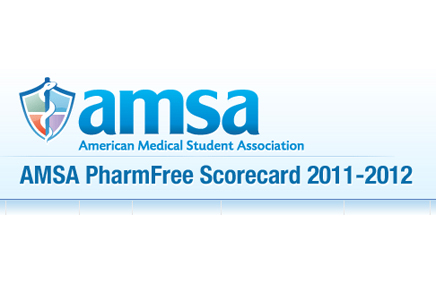For the first time since 2007, over two-thirds of medical schools have “model” conflict-of-interest policies in place, but industry support for CME remains one concern.
That was the finding of the American Medical Students Association (AMSA), which in March released its fifth scorecard of conflict policies among the 152 medical schools in the US and Puerto Rico.
The group’s PharmFree Scorecard, which it develops in conjunction with the Pew Prescription Project, found a year-over-year increase in schools with A or B grades to 102, from 79 (52%) in 2010 and 45 (30%) in 2009.
“This demonstrates a new baseline,” the group said in a summary of the results.
About a quarter improved their policies since last year, including Harvard Medical School, which scored an A through a strong policy that includes a ban on speakers’ bureaus in addition to strong rules regarding gifts, disclosure and samples.
Financial support for CME, however, remains “challenging,” AMSA said; only 20 schools, up from 15 in 2010, earned perfect scores with respect to on-campus CME; 88, up from 75 in 2010, earned ideal scores with respect to support for off-campus CME.
Among other policies assessed by the ScoreCard are acceptance of consulting and speaking relationships and access of company sales reps to academic or hospital personnel.
From the April 01, 2012 Issue of MM+M - Medical Marketing and Media








